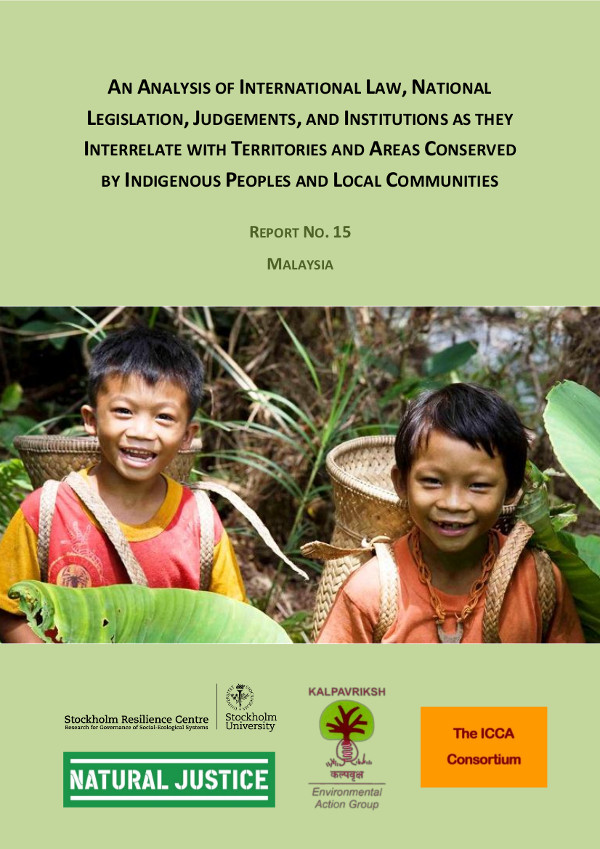First published on 09/21/2012, and last updated on 06/02/2017
Malaysia has a multi-cultural population, partly a legacy of its strategic location as a trading center between east and west, and also as a British colony which attracted migrant workers to work in its planations and mines. Despite considerable variation and inter-marriage, the dominant population in Peninsular Malaysia is generally defined as the Malays, followed by the ethnic Chinese and Indians, and other less numerous groups. In Sabah and Sarawak however the ethnic composition is quite different and indigenous people form the majority of the populations of both states. Many of the indigenous communities in Malaysia continue to be closely associated with particular ancestral domains and have distinct cultures, languages, lifestyles and traditions.
Between 2011-2012, the ICCA Consortium undertook an international-to-local analysis of a spectrum of laws relevant to ICCAs. The reports analyze the effects of laws, policies and implementing agencies on ICCAs, and explore the diversity of ways in which Indigenous peoples and local communities are using the law to sustain the resilience of their ICCAs. Goals:
- Recognizing and supporting conservation by indigenous peoples and local communities.
- Analyses of international law, national legislation, judgments, and institutions as they interrelate with territories and areas conserved by indigenous peoples and local communities.
The synthesis report was launched in 2012 at the World Conservation Congress (Jeju, Korea) and the 11th Conference of the Parties to the Convention on Biological Diversity (Hyderabad, India)
